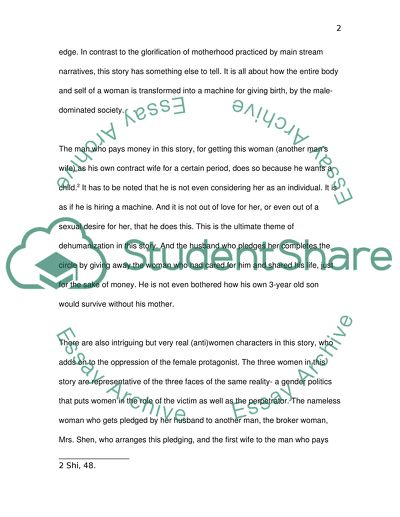Cite this document
(“Gender and womanhood, manipulation and victimization in the stories: Term Paper”, n.d.)
Retrieved de https://studentshare.org/literature/1392125-gender-and-womanhood-manipulation-and-victimization-in-the-stories-slave-mother-when-i-was-in-xia-village-and-hands
Retrieved de https://studentshare.org/literature/1392125-gender-and-womanhood-manipulation-and-victimization-in-the-stories-slave-mother-when-i-was-in-xia-village-and-hands
(Gender and Womanhood, Manipulation and Victimization in the Stories: Term Paper)
https://studentshare.org/literature/1392125-gender-and-womanhood-manipulation-and-victimization-in-the-stories-slave-mother-when-i-was-in-xia-village-and-hands.
https://studentshare.org/literature/1392125-gender-and-womanhood-manipulation-and-victimization-in-the-stories-slave-mother-when-i-was-in-xia-village-and-hands.
“Gender and Womanhood, Manipulation and Victimization in the Stories: Term Paper”, n.d. https://studentshare.org/literature/1392125-gender-and-womanhood-manipulation-and-victimization-in-the-stories-slave-mother-when-i-was-in-xia-village-and-hands.


